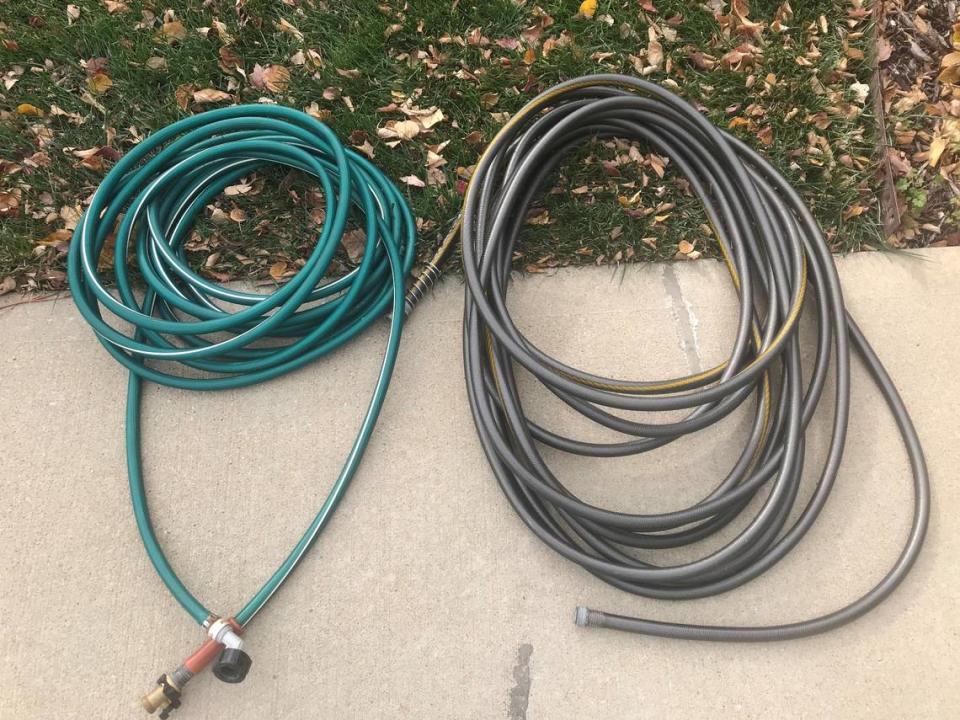Running out of gas: It’s on list of tips to ensure garden tools are ready for spring
Our garden equipment and tools are an investment. Care should be taken to ensure they are maintained and remain in proper working order. Before we hibernate for the long winter, take the time now to ensure you are ready to mow, dig and plant come spring.
Power equipment
Service power equipment such as mowers, tillers and garden tractors. Run the equipment out of gas before winter storage or treat with a gas stabilizer. Untreated gas can deteriorate and clog the equipment. If using a stabilizer, run the engine long enough for any untreated gas in the carburetor to burn off. This helps keep fuel lines open.
Change the oil while the engine is warm. Check and clean air filters and replace if necessary. Many mowers and tillers will have a foam filter that can become filthy with use. Dirty filters cause engines to run poorly, or they may not run at all. Check and replace the spark plug.
Sharpen blades, clean tines, tighten screws and replace broken parts to keep equipment in good shape. Maintenance does take time and effort, but it reduces the frustration of time lost due to poorly performing equipment during a hectic spring and pays for itself.
Don’t consider yourself handy? Then take your power equipment to a small-engine shop for a proactive tune-up and any repairs. This may be a slower time and will allow you to avoid the spring rush.
Hand-tool care
The end of the season is an excellent time to clean up and protect your tools so they will last. Hoes, shovels and garden tools often have wooden handles. These handles deteriorate if left outdoors. Weathering raises the grain on wooden handles and can result in splinters. Sand rough areas. Apply a wood preservative, such as linseed oil or polyurethane, to protect the wood. Wipe off any excess as oil-based products can attract dirt.
Remove soil from metal surfaces. Use sandpaper or steel wool to remove any rust that may have formed. Sharpen dull edges as a sharp tool makes work easier. A light coating of oil will help protect metal through the winter and prevent rust.
Hoses and irrigation lines
Hoses and shallow irrigation lines may be damaged over the winter if not drained.

Lawn irrigation systems have shallow lines. If there is a main shutoff valve for the system, close it and run through the zones to make sure any water pressure has a chance to escape before a hard freeze. Some systems require a professional to blow the excess water from the underground lines. Contact your irrigation service provider.
Garden hoses should be drained and disconnected from the water outlet. Hoses should be stretched out to drain and coiled for storage. Hoses are best stored in a protected place for winter as UV light can make hoses brittle over time.
Garden equipment and tools are an expensive investment. If you take some time now for general maintenance, it will check one more task off the list of seasonal chores. You will be ready to get down to business without delay when spring arrives.
Dennis Patton is a horticulture agent with Kansas State University Research and Extension. Have a question for him or other university extension experts? Email them to garden.help@jocogov.org.

 Yahoo Movies
Yahoo Movies 
